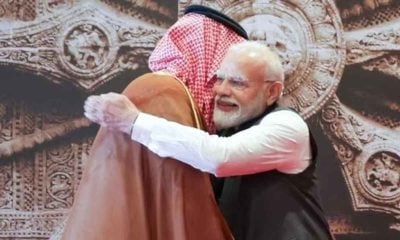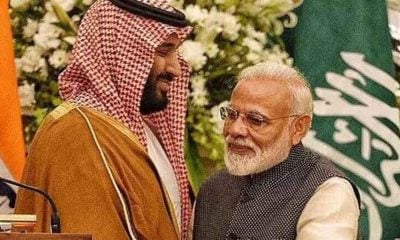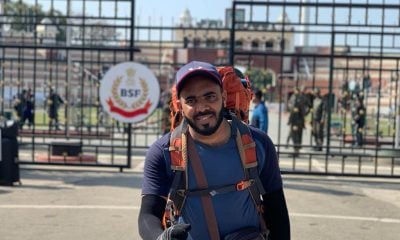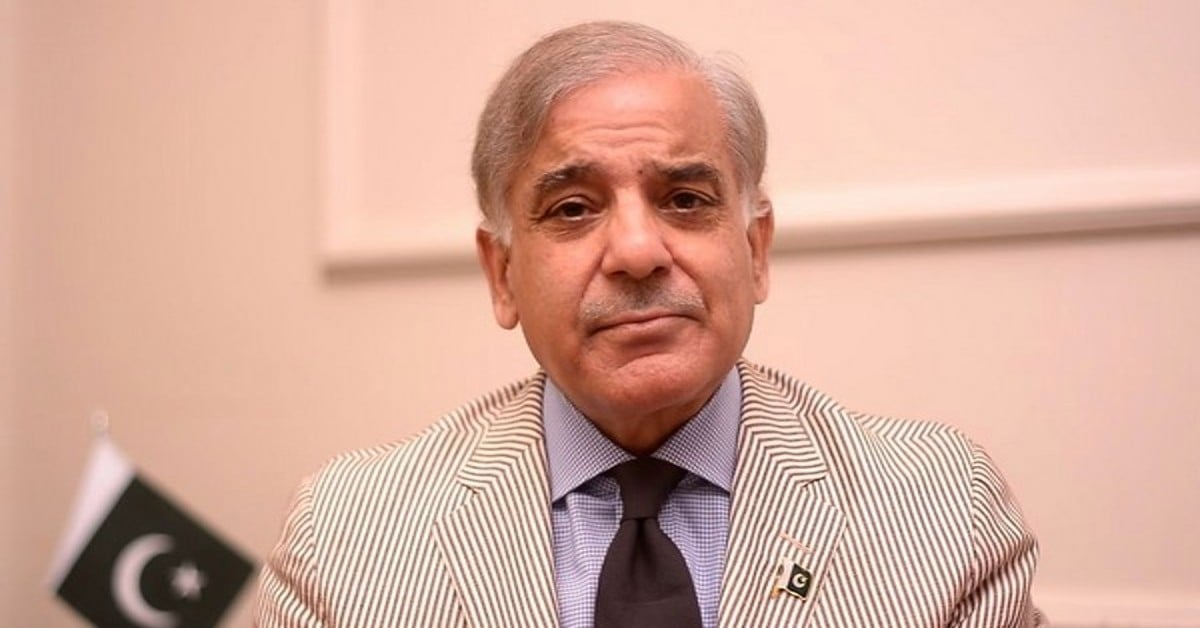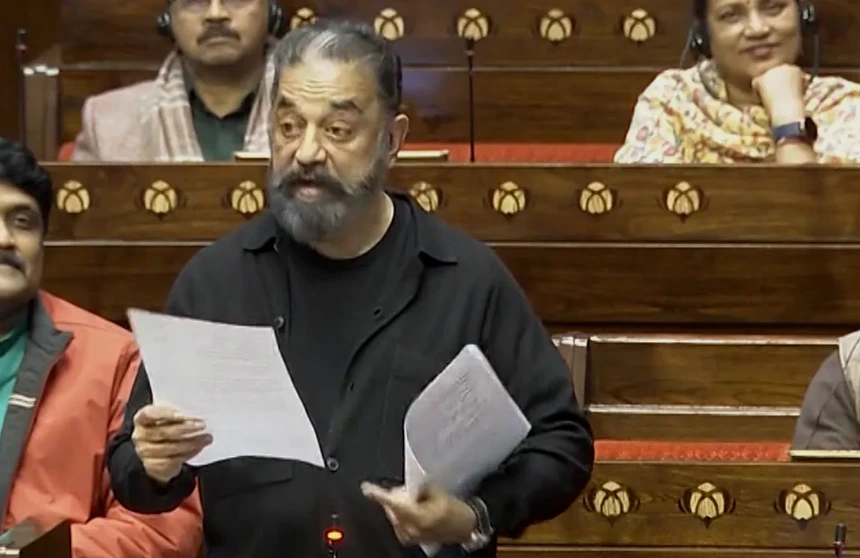[vc_row][vc_column][vc_column_text]We will destroy them today and immediately, says Crown Prince
In a major development in the Middle East, Saudi Arabia’s Crown Prince Mohammed bin Salman has pledged to destroy “extremist ideologies” and return to a moderate Islam that is open to all religions. He was speaking at a conference attended by foreign investors in Riyadh on Tuesday.
Salman was appointed as Crown Prince in June 2015. He has presented his Vision 2030, a plan to reduce dependence on oil, diversify economy, develop public service sectors, increase non-oil industry trade between countries and rise in military spending.
He played instrumental role in inviting US President Donald Trump to Saudi Arabia in May this year: his maiden foreign visit after occupying White House. More than 50 heads of Muslim states were brought in Riyadh on the occasion.
While addressing Future Investment Initiative (FII) conference Salman said, “We are returning to what we were before — a country of moderate Islam that is open to all religions and to the world.” The conference was attended by an audience of thousands of global investors and dignitaries.
The FII is an international event at which Saudi Arabia seeks investment into the kingdom from around the world.
The Crown Prince also announced Saudi Arabia will “eradicate promoters of extremist thoughts” saying the country was not like this in the past. “Seventy percent of the Saudi population is under the age of 30. In all honesty, we will not spend 30 years of our lives dealing with extremist ideologies. We will destroy them today and immediately,” bin Salman said.
He continued, “Saudi was not like this before ’79. Saudi Arabia and the entire region went through a revival after ’79. … All we’re doing is going back to what we were: a moderate Islam that is open to all religions and to the world and to all traditions and people. We want to live a normal life.”
“We are returning to what we were before – a country of moderate Islam that is open to all religions and to the world,” the 32-year-old heir to the throne said.
1979 was a historical year in the region. Pro-US King Reza Shah Pehlavi was overthrown in Iran by Islamic revolutionists while fundamentalist Sunnis had seized Grand mosque in Mecca and country’s Shia minority had staged deadly revolt in Al-Hasa province.
Reacting to the situation, Saudi monarchy built ties with Wahabi religious establishment for restoring many hard-line stances. They even closed down the movie theatres in the kingdom.
Saudi Arabia is home to the extremist Wahabism, propounded by Mohammed bin Abd al-Wahab, rejecting all other Islamic schools of thoughts, including Sunnis who offer prayers at the grave of Prophet Mohammed and visit the graves of other Islamic personalities or the Sufis and also the Shias, who reject first three Caliph and believe Ali and his family heirs as successors of the Prophet.
Crown Prince Salman’s remarks came a month after Saudi Arabia made a “landmark decision” to allow women to legally drive vehicles from June 2018. The move was criticised by conservative voices in the country but welcomed by right activists. The Kingdom is the only country on earth where women are not allowed to drive.
The present government in Saudi Arabia had recently allowed the first music concerts in decades, cracked down on religious incitement and granted womena growing list of rights, including driving vehicles.
In September, twenty prominent religious figures, intellectuals and activists, considered to be the dissidents were arrested in the kingdom. Amnesty International’s Samah Hadid was quoted saying, “In recent years, we cannot recall a week in which so many prominent Saudi Arabian figures have been targeted in such a short space of time.”
The organization said the rights situation in the country had “deteriorated markedly” since Prince Mohammed bin Salman took over as Crown Prince and heir to the throne on June 21.
The US based Human Rights Watch also suggested that the arrests could be connected to Crown Prince’s efforts to consolidate power.
Among those detained last month included prominent Islamic preachers Salman al Awdah and Awad al-Qarni, who opposed the presence of US troops in the kingdom in 1991 Gulf War over Kuwait. Both are accused of having links with Muslim Brotherhood, which has been blacklisted as terror group.
Most of the present day terror groups including Taliban, Al-Qaeda, Daesh (IS), Al-Shabab (in African continent), Lashkar-e-Taiba, Jaish-e-Mohammad, Haqqani network are considered to be the influenced by Wahabi extremist ideology. A senior cabinet minister had acknowledged movement of thousands of Saudi youth to Iraq after 2003 war.
Saeed Naqvi, a veteran journalist in one of his recent articles published by APN Live, had revealed Saudi connection to the extremist elements in Rakhine province of Myanmar. He said that in 2012, Prince Bandar bin Sultan, former Saudi ambassador to US had invited a Rohingya named Hafiz Taha to his office in Riyadh and assigned to develop “Islamic sleeper cells” in Rakhine.[/vc_column_text][/vc_column][/vc_row]
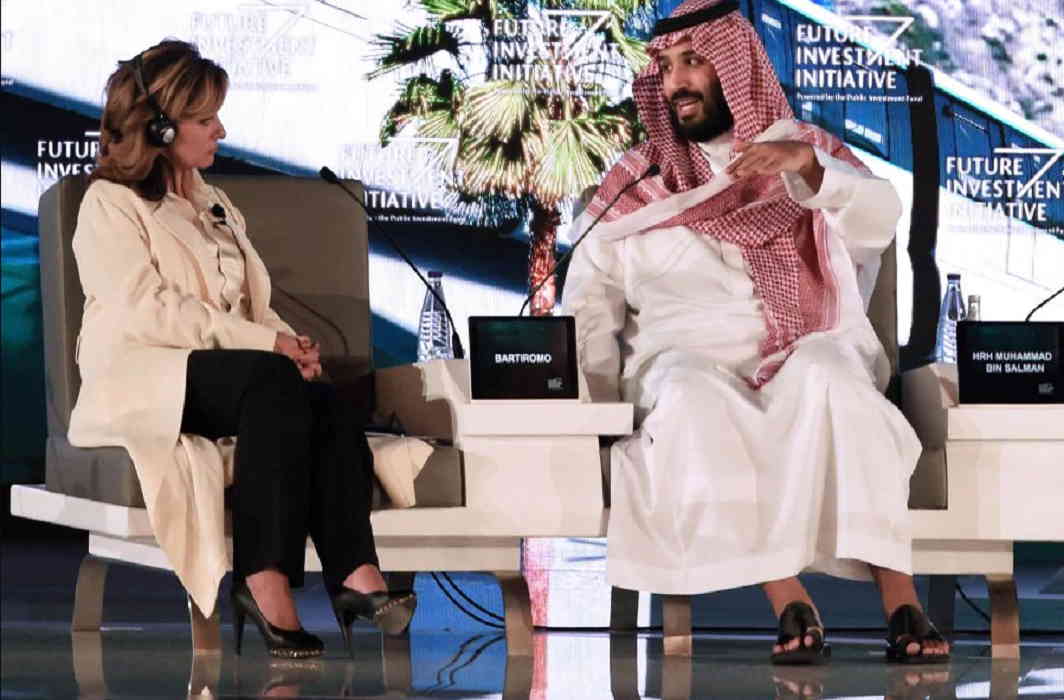

 India News21 hours ago
India News21 hours ago
 India News16 hours ago
India News16 hours ago
 India News1 hour ago
India News1 hour ago
 India News52 mins ago
India News52 mins ago
 Latest world news35 mins ago
Latest world news35 mins ago




